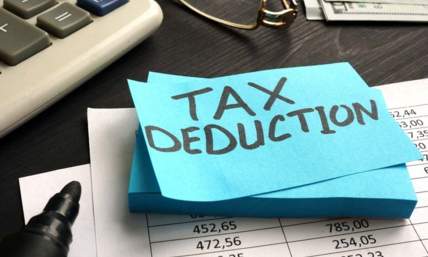Prevent Tax Audits From Happening to You!
The IRS audited about 1 million returns for the 2017 calendar year. That may sound like a lot, but it only amounts to about 0.5% of all tax returns filed that year. With such a small fraction of returns undergoing tax audits, your chances are relatively low. The IRS uses statistical formulas to select choose people for audits. That formula is based on the norms for other returns like yours.
You may also be selected based on your relationship with others who are audited. If your business partner is audited, you may be too. An auditor checks your return once it's selected. If everything checks out, it's approved. If anything looks suspicious, the IRS investigates further with an audit. You can't completely protect yourself from an audit, but you can make yourself less of a target.
Following the rules of tax preparation helps you stay off the radar of the IRS. Trying to take deductions or credits you don't qualify for may save you money immediately, but it may catch up with down the road in an audit. Cut down on your chances of an audit with these tips.
Also read: Income Tax Working In Another State
File A Return Every Year
Always file your tax return yearly and on time to avoid an inquiry from the IRS. Even if you don't have any income for the year, you still need to file a return. Your filed return shows that lack of income and why you don't need to pay taxes for that tax year. If you fail to submit a return, expect contact from the IRS on the missing records.
On the other hand, reporting no income can make you more of a target for an audit. That's especially true if you're self-employed and report no income or a loss for the business. The IRS wants to know you truly had a loss or made no money. Some people try to get away with not paying taxes by saying they had a loss or had no taxable income.
Even if you legitimately had no taxable income, you're lumped in with those potential scammers and may get audited.
Also read: A Guide to the Internal Revenue Code - Section 162(m)
Complete Returns Clearly And Accurately
You want to get your taxes done as quickly as possible, but rushing puts you at risk of little mistakes that can create a red flag on your return. Those mistakes might include flipping around numbers, copying numbers incorrectly, or calculating inaccurately. Another red flag is mismatching numbers. Make sure you write the numbers exactly the same every place you record them.
Entering a number differently between your state and federal return is an example. Automated checking systems make it easy for the IRS to catch the inconsistencies. Always check your numbers, verifying that what's on your W2 form is what you enter on your tax return. Check your subtraction and additional calculations to ensure you did it correctly the first time.
Make sure you use your best penmanship if you complete paper copies of your returns. If the person reviewing your return can't read what you wrote, it may cause unwanted attention that lands it in the audit pile. Using a tax preparation software can reduce the risk of errors. The programs handle the calculations for you and alert you to potential issues.
You still need to ensure you enter the data correctly into the software program. Check out TurboTax if you haven't already for some quick e-filing options.
Use A Reputable Tax Preparer
If you let someone else do your taxes, choose a reputable company. Any mistake on your return creates an increased risk of an audit, even if you're not the one who makes the mistake. A tax preparer who makes a mistake on your calculations could set you up for an audit. Some of those mistakes may be innocent. Others may be intentional to lower your tax obligations with unethical business practices.
You're the one stuck dealing with an audit in those situations. If you choose an unreliable tax preparer, don't expect them to be there to support you through the audit. Look for a tax preparation company that backs up its work. Many reliable preparers will help you if you get audited.
Include All Information
Don't leave out any income or other information, even if it's small and seems insignificant. You need to report all sources of income, even small dividend payments or interest. Your return is most accurate if you wait until all tax paperwork arrives to file. Include all income on your return based on those documents and your records.
Fill in all blanks on your tax form. Even if you don't have data for that line, include a 0 so you don't have blank fields on your tax return.
Report Data With Honesty
Never lie on your tax return or falsify any of your information. The IRS knows what makes sense for different jobs, income levels, and other situations. If you grossly overstate how much you donate to charity, it'll likely send up a red flag if it's much higher than normal for your income level. Deductions are another area where some people try to cheat.
Don't try to take deductions you can't back up with receipts or other proof. Make sure you know if something qualifies for a legitimate deduction. Not understanding tax laws or not fully understanding the deduction isn't a valid excuse to get yourself out of trouble. Inaccurate data on your tax return, even if it's because of your lack of knowledge, is still a red flag for the IRS.
It could make you a target for an audit. If you don't understand the tax laws, hire someone to handle your return for you.
Include Evidence
If your tax situation could cause suspicions from the IRS, provide extra documentation to support your data, even if it's not required. If you're a small business owner or freelancer, you may be at more of a risk. You need to keep your own accurate freelance financial records to prove your income and deductions.
You might send receipts proving your business expenses or documentation showing your office deduction is valid. Or you might send a canceled check showing your donation to a charity. These proactive documents may keep the IRS auditors at bay. They can see that the information you provided is accurate, so they're less likely to suspect fraud or inaccuracies.
Avoid Tax Audits
Tax audits seem scary, but they're a rare occurrence, and most tax filers don't have to worry about them. Being honest and accurate on your tax returns can reduce your chances of being audited, but you can't completely audit-proof yourself. If you're a small business owner or contractor, generating paystubs can help you with proof of income at tax time. Try it out today!















